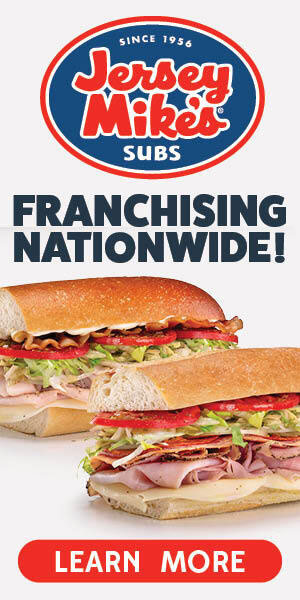Rethinking Succession Planning for Multi-Unit Owners

His youngest just finished med school. His oldest is in finance. Neither wants the multi-unit franchise business he spent 25 years building.
He always imagined one of them would step in. He thought that the long hours, the calculated risks, and the late nights balancing payroll and expansion would someday become their legacy. But now, with a thriving operation and no clear heir, he's realizing what so many franchise owners eventually do: the next generation has its own plans. And the absence of a successor doesn't just create a personal void. It creates a business risk. As franchisors demand stability, as employees look for leadership, and as timelines for exit narrow, the uncomfortable truth becomes clear. The success of your business doesn't guarantee a successor. And without a plan, the empire you've built could lose value, control, or even continuity—whether or not you're ready.
Emotional cost
Succession isn't just a financial or operational decision. It's emotional. Multi-unit franchise owners often built their businesses from the ground up, scaling slowly across cities, counties, or states. For many, it was never just about EBITDA or brand incentives. It was about family, legacy, and building something their children could one day inherit.
But that narrative is shifting. According to PwC's 2023 Family Business Survey, more than half of family businesses expect the next generation to become majority shareholders within five years. Yet only 30% have a formal succession plan in place, and only 43% have communicated that plan. The expectation is there. The planning isn't.
In franchise operations, where brand oversight, regulatory compliance, and operational complexity are baked into the business model, the cost of a delayed decision is high.
Unique challenges
Succession planning is already complex, but for franchisees operating multiple locations, the stakes are significantly higher. You're not just passing down a business. You're transferring an entire leadership model that must be approved by your franchisor, maintain consistent performance across diverse markets, and keep employees, vendors, and partners aligned.
Franchisors often require notification and approval of new leadership. They may have strict qualifications around liquidity, operational experience, or management structure. All of this happens while you navigate team retention, customer experience, and your brand's local reputation.
This is why traditional family handoffs are no longer sufficient. The central question becomes, "Who is actually qualified to run your business at scale, and how soon can they step in?"
Redefining legacy
Franchise owners often tie the idea of legacy to family ownership. But legacy is not defined by bloodlines. It's defined by continuity, culture, and values that outlive your active involvement in the business.
A more resilient model separates ownership from operations. Family members can retain influence and equity without running daily operations. They can serve as board members, act as stewards through trusts, or participate in strategic planning roles that don't require them to manage employees or units.
This redefinition opens the door to long-term business sustainability. Your brand, your culture, and your community impact can continue without relying on reluctant or unavailable family successors.
Internal leaders
In the absence of family successors, many franchisees are shifting focus to internal leadership. Area managers, high-performing general managers, and regional directors often have years of institutional knowledge and operational fluency. These individuals are positioned to lead if given structure and support.
A leadership transition might involve:
- Promoting a GM to director of operations
- Creating a profit-sharing or equity pathway for internal talent
- Mentoring a trusted manager into a COO role over time
This approach builds stability within your organization while ensuring operational continuity. It also increases franchisor confidence by demonstrating clear, experience-backed leadership succession.
Family involvement
Even if your family members aren't interested in managing the business, they can still contribute meaningfully. Many multi-unit franchise owners are adopting models where family members play oversight roles without touching daily operations.
Examples include:
- Establishing a family trust to retain voting rights and direct profit distributions
- Creating a family advisory board with a voice in long-term planning
- Involving family in real estate, capital allocation, or philanthropy tied to the brand
This helps maintain alignment between personal values and business strategy while giving your team room to lead.
Succession Stories
- Promotion. A 20-unit franchisee promoted a longtime regional manager to COO, gradually transferring operational control while keeping ownership in the family trust. The franchisor approved the plan, citing continuity and proven leadership.
- Family oversight. A fitness franchise owner created a family board to oversee strategy while the business was run by an external CEO. His daughter contributed to long-term financial planning without joining the operations team.
- Gradual buyout. One owner worked with two key managers on a five-year management buyout, gradually transitioning equity while preserving company culture and staff loyalty.
These examples show that there are multiple pathways to succession. None of them require a family member to be at the helm.
Without a plan
When owners delay succession planning, exits are often reactive and rushed. This leads to undervalued sales, brand instability, and fractured relationships with franchisors.
Worse: It leaves teams in limbo. Without clarity, employee morale suffers, turnover rises, and organizational trust erodes. That's not just a personnel issue; it's a brand risk.
Planning framework
To build a strong succession plan, follow these six essential steps:
- Define your long-term role. Will you remain an owner, become an advisor, or fully exit?
- Identify internal talent with the potential to lead.
- Create a leadership development track that includes training, mentorship, and timelines.
- Legally separate ownership and operations using trusts or operating agreements.
- Collaborate with your franchisor early to gain alignment and approval.
- Communicate clearly and regularly with your team and your family.
For a deeper, more structured approach, download the Franchisee Growth & Succession Planning Guide. This free resource is designed specifically for franchise owners preparing for growth, leadership transitions, or family involvement. It includes interactive assessments, expert insights, action checklists, and a real-world case study. More than just a guide, it's a road map to help you build a more sustainable, stable business on your terms.
Legacy that lasts
Letting go is difficult, especially when your business has been a family cornerstone. But letting go doesn't mean losing control. It means designing a future where your vision, your values, and your wealth continue regardless of who's running the day-to-day.
Legacy isn't inherited. It's built. And with the right plan in place, it can outlast you, support your family, and protect the business you worked so hard to grow.
Kendall Rawls with Rawls Succession Planners knows and understands the challenges that impact the success of a complex, privately held, and family-owned business. Contact us today to arrange a consultation and discover how we can empower you to overcome obstacles and achieve lasting success. Whether you're navigating regulatory shifts or striving to build a top-tier team, we're here to help you thrive in today's multi-unit franchising landscape. For more information, visit seekingsuccession.com or email [email protected].
Share this Feature
Recommended Reading:
| ADVERTISE | SPONSORED CONTENT |
FRANCHISE TOPICS
- Multi-Unit Franchising
- Get Started in Franchising
- Franchise Growth
- Franchise Operations
- Open New Units
- Franchise Leadership
- Franchise Marketing
- Technology
- Franchise Law
- Franchise Awards
- Franchise Rankings
- Franchise Trends
- Franchise Development
- Featured Franchise Stories
| ADVERTISE | SPONSORED CONTENT |

$750,000
$50,000





 The multi-unit franchise opportunities listed above are not related to or endorsed by Multi-Unit Franchisee or Franchise Update Media Group. We are not engaged in, supporting, or endorsing any specific franchise, business opportunity, company or individual. No statement in this site is to be construed as a recommendation. We encourage prospective franchise buyers to perform extensive due diligence when considering a franchise opportunity.
The multi-unit franchise opportunities listed above are not related to or endorsed by Multi-Unit Franchisee or Franchise Update Media Group. We are not engaged in, supporting, or endorsing any specific franchise, business opportunity, company or individual. No statement in this site is to be construed as a recommendation. We encourage prospective franchise buyers to perform extensive due diligence when considering a franchise opportunity.